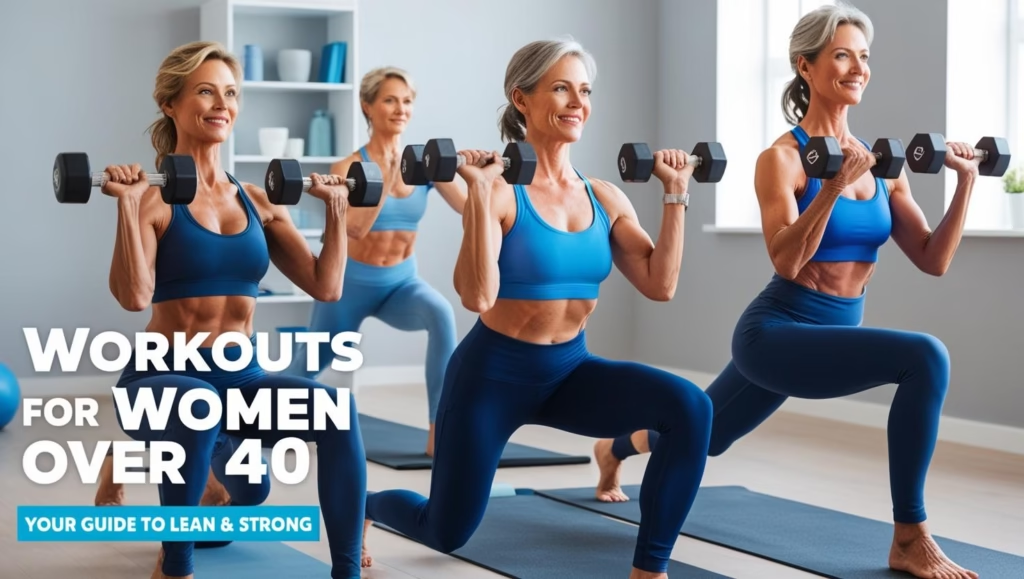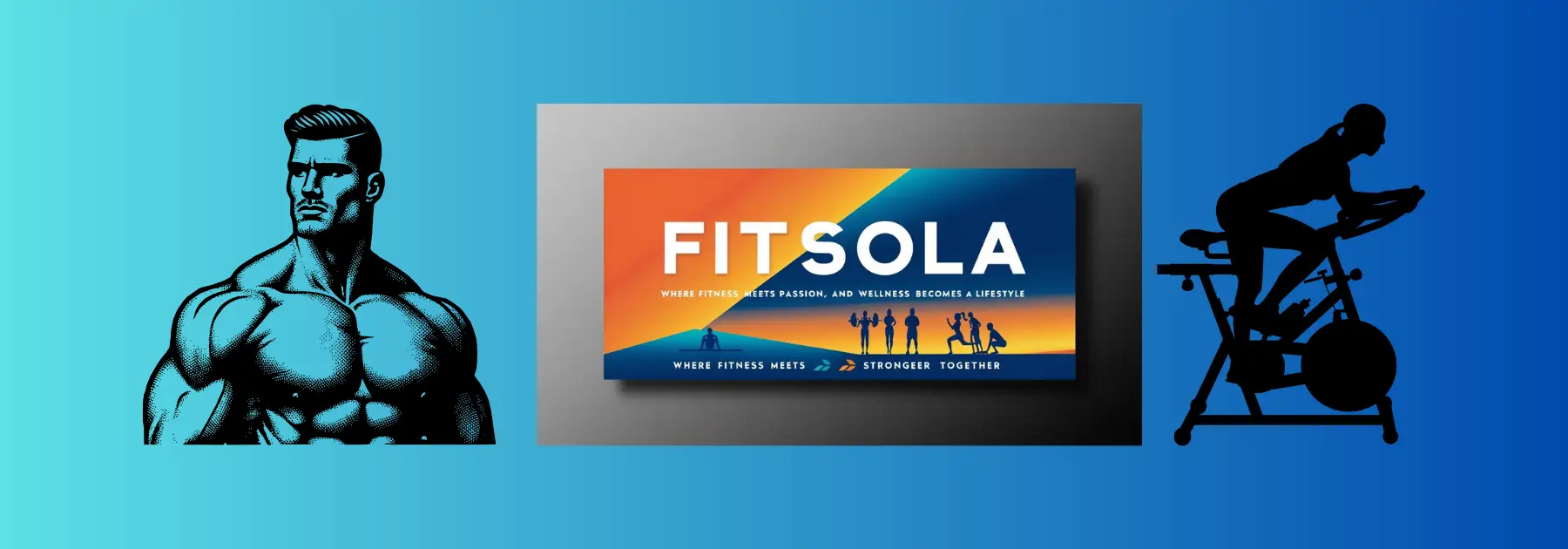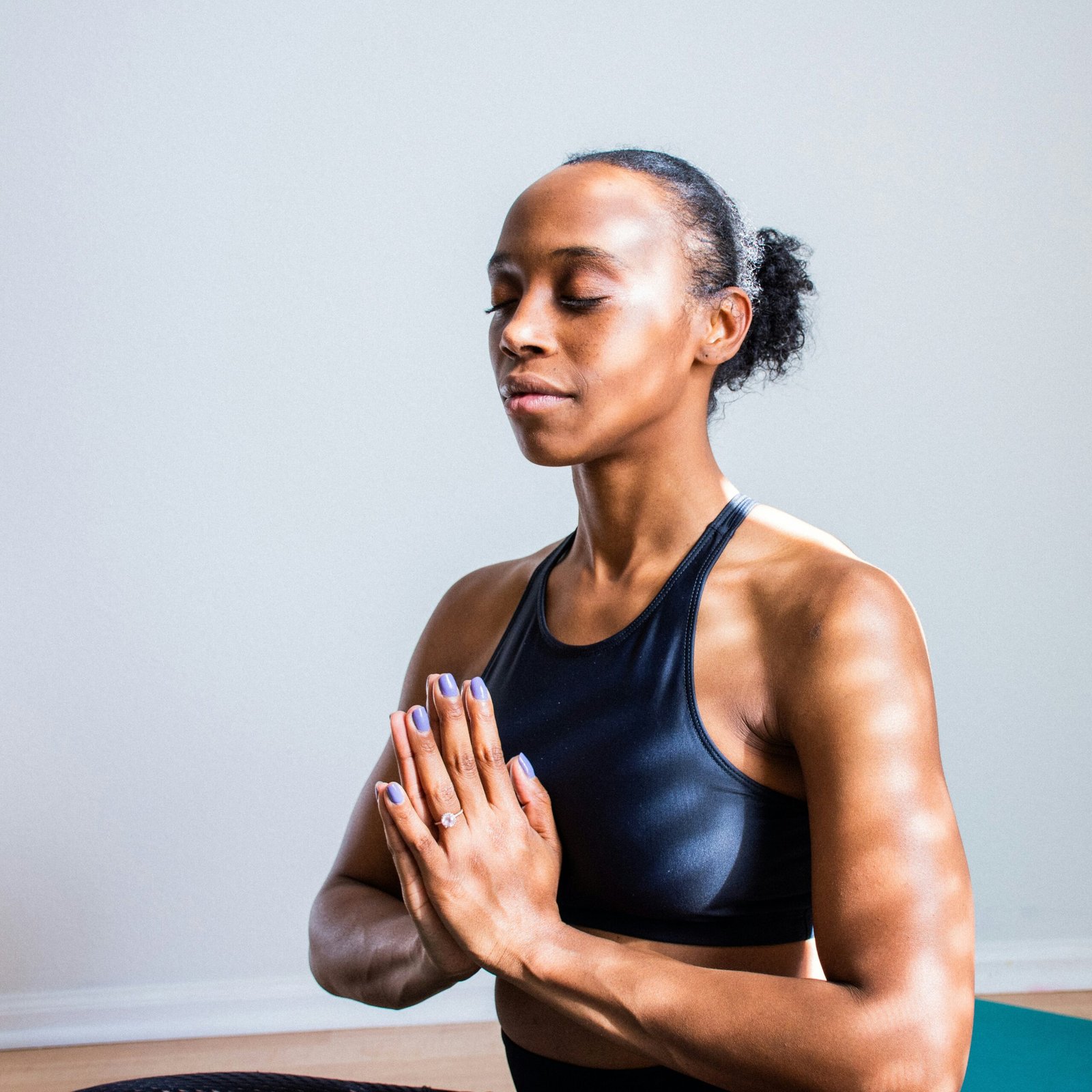Introduction
As women reach the milestone of 40 years of age, they often encounter a variety of physical and emotional changes that can impact their overall health and fitness. Hormonal fluctuations, particularly during perimenopause and menopause, can lead to challenges such as weight gain, decreased energy levels, and altered muscle mass. This is why specialized workouts for women over 40 become crucial during this phase. Coupled with a naturally slowing metabolism, these changes can make it more difficult for women over 40 to maintain their desired physique and health.
Despite these challenges, engaging in regular physical activity remains essential for women in this age group. Establishing a tailored workout regimen is crucial to address these unique needs effectively. Focusing on workouts that enhance strength, flexibility, and cardiovascular health will not only help combat the effects of aging but also empower women to embrace this phase of their lives with confidence.
A comprehensive fitness program for women over 40 should incorporate various elements such as strength training, which aids in preserving and building muscle mass; flexibility exercises that enhance mobility and prevent injuries; and cardiovascular workouts that promote heart health and increase endurance. The integration of these components can facilitate a holistic approach to fitness, ensuring women remain lean, strong, and fabulous.
Additionally, consistency is vital. Establishing a routine that accommodates individual preferences and schedules can foster long-term adherence to exercise. It is important for women to listen to their bodies and make adjustments as necessary, prioritizing wellness over rigid expectations. With the right mindset and tailored fitness strategy, women over 40 can overcome obstacles and flourish physically and mentally.
Understanding the Physical Changes After 40
As women enter their forties, a multitude of physiological changes begins to manifest, significantly impacting their health and fitness. One of the most notable changes is the gradual decline in muscle mass, also known as sarcopenia. This natural aging process can lead to a decrease in strength and mobility, making routine activities more challenging. Consequently, it becomes essential for women over 40 to integrate strength training into their workout regimens. This practice not only helps to mitigate muscle loss but also boosts metabolism, promoting a leaner physique.
In addition to decreased muscle mass, women in this age group often experience changes in bone density. The onset of menopause typically leads to a reduction in estrogen levels, which plays a crucial role in maintaining bone health. As a result, women may become more susceptible to osteoporosis and fractures. To combat these risks, weight-bearing exercises are vital. Activities that promote bone strength, such as resistance training and high-impact workouts, can prove beneficial in maintaining bone density and overall physical health.
Furthermore, as metabolism naturally slows with age, many women encounter challenges in maintaining a healthy weight. This can increase the risk of chronic diseases, such as heart disease, diabetes, and hypertension. Therefore, it is crucial for women over 40 to adopt a balanced approach to fitness that incorporates cardiovascular exercises alongside strength training. Engaging in a variety of workouts not only aids in weight management but also enhances cardiovascular health and improves overall well-being. Flexibility and mobility exercises, such as yoga or Pilates, can also play a crucial role in ensuring that women maintain their functional movements and prevent injuries.
The Importance of Strength Training
Strength training is an essential component of a fitness routine for women over 40, offering numerous benefits that can significantly enhance overall health and well-being. As women age, the natural decline in muscle mass and bone density often becomes apparent, making the incorporation of resistance exercises vital. Through strength training, women can increase muscle mass, which not only contributes to a toned appearance but also supports metabolic function. An improved metabolism helps in maintaining a healthy weight, which can be challenging during the menopausal transition.
Another critical advantage of strength training is its positive impact on bone density. Osteoporosis is a prevalent concern for women as they age, leading to an increased risk of fractures and bone-related ailments. Engaging in regular strength training exercises has been shown to increase bone mineral density, thereby reducing the likelihood of osteoporosis and associated complications. By promoting stronger, denser bones, women can enhance their structural integrity and better handle the stresses of daily activities.
Therefore, it is crucial for women over 40 to embrace strength training as part of their fitness routine. The benefits—ranging from improved muscle mass and metabolism to enhanced bone density and mental well-being—highlight its importance in promoting long-term health and preventing age-related decline.
Cardiovascular Workouts for Endurance
Cardiovascular workouts play a pivotal role in promoting overall fitness, particularly for women over 40. Engaging in aerobic exercises not only enhances heart health but also significantly contributes to metabolic function and weight management. For those in this age group, it is essential to choose activities that are enjoyable, sustainable, and aligned with their fitness levels.
Walking is one of the most accessible forms of cardiovascular exercise. It can be adapted easily to suit various fitness levels, allowing individuals to start slowly and gradually increase their pace or distance. Regular walking routines, especially brisk walking, can help improve cardiovascular endurance, assist in weight control, and support mental health through outdoor engagement.
Cycling is another excellent option, whether performed outdoors or on a stationary bike. It strengthens the legs and improves cardiovascular capacity while being low-impact, making it a suitable choice for those with joint concerns. Cycling can be incorporated into daily activities, such as commuting or leisurely rides on weekends, thus facilitating consistent exercise without an overwhelming time commitment.
Swimming offers a full-body workout that is gentle on the joints, making it ideal for women over 40. It promotes muscle endurance, flexibility, and cardiovascular health while providing a refreshing way to stay active. Swimming laps at varying intensities can cater to different fitness levels, allowing for a personalized workout routine.
Lastly, low-impact aerobics classes can provide a social and fun environment for exercise. Engaging in rhythmic movements can improve cardiovascular fitness, coordination, and overall endurance. When participating in any of these cardiovascular workouts, women should aim for at least 150 minutes of moderate-intensity exercise per week. This can be split into manageable sessions to maintain motivation and consistency, further enhancing health outcomes.
Incorporating Flexibility and Balance Exercises
As women age, particularly after 40, maintaining flexibility and balance becomes increasingly important for overall health and well-being. Engaging in flexibility and balance exercises, such as yoga and Pilates, offers multiple benefits that extend beyond physical performance. These forms of exercise focus on stretching and strengthening muscles, enhancing joint mobility, and improving posture. A regular practice not only leads to a more agile body but also contributes significantly to pain relief, particularly in areas susceptible to tension, such as the back and neck.
Yoga, with its gentle movements and emphasis on breath control, is particularly effective for improving flexibility. The various postures involved in yoga help elongate tight muscles and promote a greater range of motion in the joints. This can be beneficial for women over 40, as muscle stiffness and joint discomfort often become more pronounced during this stage of life. Additionally, yoga encourages mindfulness, which can enhance mental well-being by reducing stress and anxiety levels.
Pilates, on the other hand, focuses on core strength and stability, which is vital for maintaining balance. With increasingly sedentary lifestyles, especially as one ages, core strength often diminishes, leading to a higher risk of falls and injuries. By incorporating Pilates into a weekly routine, women can bolster their core muscles, thus improving their balance and stability in daily activities. Furthermore, both yoga and Pilates can help foster body awareness, which enhances coordination and facilitates better movement patterns.
In summary, integrating flexibility and balance exercises such as yoga and Pilates can play a crucial role in the fitness regimens of women over 40. Not only do these workouts improve overall physical performance, but they also reduce the risk of injury while promoting mental well-being, making them an essential aspect of a well-rounded fitness routine.
Creating a Balanced Workout Routine
Developing a balanced workout routine is essential for women over 40, as it promotes overall wellness and addresses the unique challenges faced by this age group. A comprehensive fitness plan should include strength training, cardiovascular activities, flexibility exercises, and balance training. Each component plays a vital role in enhancing physical health, promoting lean muscle mass, and reducing the risk of injury.
To begin with, strength training is crucial for maintaining muscle density and combating age-related muscle loss. Aim for at least two to three sessions per week, focusing on major muscle groups such as the legs, back, arms, and core. Utilizing bodyweight exercises, resistance bands, or weights can help create a well-rounded strength training program. Women should consider starting with lighter weights and gradually increasing their load as they progress.
Cardiovascular exercise is another integral aspect of a balanced workout routine. Aim for a minimum of 150 minutes of moderate-intensity cardio per week, which can be broken down into sessions of 30 minutes, five times a week. Activities like brisk walking, cycling, swimming, or dancing not only increase heart health but also enhance endurance and flexibility.
Incorporating flexibility exercises, such as yoga or Pilates, is also vital for maintaining joint health and preventing injuries. Dedicate time for these activities two to three times a week. Additionally, balance exercises, which can be as simple as standing on one leg or participating in tai chi, should be included to improve stability and coordination. Focusing on balance becomes increasingly important as we age to reduce the risk of falls.
A sample weekly schedule can include three days of strength training, two days of cardio, and two days focused on flexibility and balance. This arrangement ensures a well-rounded routine while allowing for adequate recovery time. Adhering to such a structured fitness plan can help women over 40 stay lean, strong, and fabulous as they navigate through life.
Nutrition to Support Your Fitness Goals
As women age, particularly after the age of 40, nutrition becomes an essential component of maintaining health and enhancing fitness. To stay lean, strong, and fabulous, a well-balanced diet is critical. One of the most significant aspects of nutrition for women in this age group is the adequate intake of protein. Protein is vital for muscle repair and growth, especially as muscle mass naturally declines with age. Including a variety of protein sources, such as lean meats, fish, eggs, legumes, and dairy, can help support strength training efforts while promoting overall health.
Hydration is another crucial factor that directly impacts fitness performance and recovery. Many women may not realize the importance of drinking enough water throughout the day. Proper hydration plays a key role in muscle function and recovery, aids in digestion, and can even improve concentration and mood. Ideally, women should aim for at least eight to ten cups of water daily, adjusting for individual activity levels, climate, and overall health conditions.
Creating balanced meals is also an essential strategy for nutritional success. A well-balanced meal should include healthy fats, complex carbohydrates, and a variety of fruits and vegetables. This combination provides the necessary energy for workouts, ensures recovery post-exercise, and supports overall well-being. It’s also vital to focus on micronutrients such as calcium, vitamin D, and magnesium, which play significant roles in bone health, immune function, and energy metabolism. Women over 40 may want to pay extra attention to these nutrients to counteract any age-related deficiencies.
Incorporating a diverse and nutrient-rich diet can significantly enhance fitness outcomes and contribute to feeling fabulous at this stage in life. By prioritizing these nutritional considerations, women can seamlessly support their fitness goals while leading a healthy lifestyle.
Staying Motivated and Overcoming Barriers
As women transition into their forties and beyond, they may encounter various barriers that can impede their fitness journey. Common issues include time constraints, dwindling motivation, and self-doubt. Recognizing these obstacles is crucial in crafting effective strategies to maintain a consistent workout regimen.
Time constraints often arise due to increased professional and familial responsibilities. A useful approach is to integrate fitness into daily routines. Short, high-intensity workouts or engaging in physical activities with family can make exercising more manageable. Allocating just 20-30 minutes several times a week can produce significant benefits without being overwhelming. Additionally, setting aside specific times for exercise can reinforce the habit and instill a sense of commitment.
Motivation can fluctuate, especially when immediate results are not visible. To cultivate long-term motivation, women can benefit from setting realistic, incremental goals. Rather than focusing solely on outcomes such as weight loss, consider emphasizing improvements in overall strength, endurance, or flexibility. This shift in perspective can foster a sense of accomplishment and encourage continuity in fitness pursuits.
Furthermore, self-doubt often surfaces after decades of societal pressures regarding beauty and fitness. To combat these feelings, seeking social support can be incredibly beneficial. Joining a local fitness group, finding a workout buddy, or participating in community classes can create a sense of camaraderie, making the journey more enjoyable. Online platforms and social media can also serve as valuable resources for motivation and accountability.
By understanding these barriers and implementing strategies like scheduling exercise, setting progressive goals, and fostering social connections, women can enhance their fitness experience. Building a supportive environment can empower women to stay committed to their health and wellness, ultimately achieving a leaner, stronger, and more fabulous self.
Conclusion: Embracing a Healthier Lifestyle
In today’s fast-paced world, prioritizing health and wellness is essential, especially for women over 40. As we age, our bodies undergo significant changes, necessitating a thoughtful approach to fitness. Engaging in regular workouts is not merely about maintaining physical appearance; it serves as a crucial factor in enhancing overall well-being. Finding the right workouts that resonate with personal interests and fitness levels can empower women to stay strong and vibrant.
The key workouts that have been highlighted include strength training, which promotes muscle preservation and enhances metabolic rate, yoga for its benefits in flexibility and mental clarity, and cardiovascular exercises that improve heart health. It is essential for women to incorporate a mix of these exercises into their routines. This variety not only prevents monotony but also promotes a comprehensive approach to fitness, ensuring that different muscle groups are engaged and balanced health is maintained.
Moreover, the journey towards a healthier lifestyle extends beyond just physical workouts. It embraces nutrition, mental health, and social connections. Women over 40 can benefit greatly from nourishing their bodies with a well-rounded diet rich in nutrients necessary for aging well. Furthermore, fostering supportive relationships and being part of communities can motivate individuals to stay committed to their fitness goals.
It is important to remember that embarking on this journey can be both empowering and liberating. Whether one is initiating a workout plan or revisiting established routines, every effort counts towards building a stronger, healthier self. Ultimately, it is never too late to commit to personal health, and every step taken can lead to a fulfilling and vibrant life filled with vitality, strength, and happiness.




